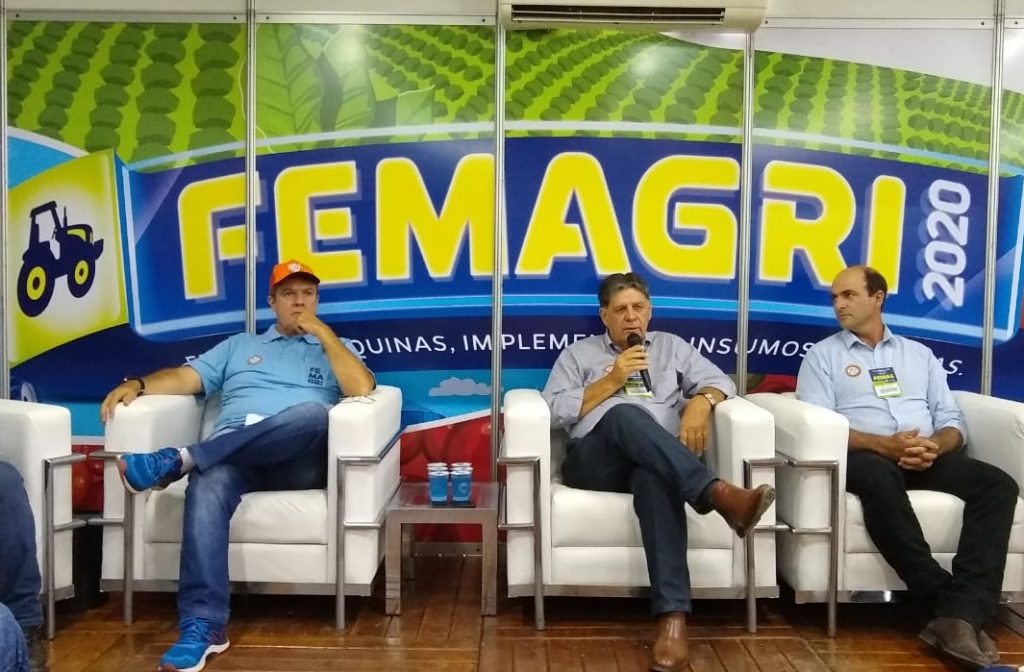Guaxupé – Middle Eastern and Arab demand for coffee from Brazil has grown above the global average, Guaxupé Coffee Farmers Cooperative chairman Carlos Augusto Rodrigues De Melo (pictured, center) told ANBA this Thursday (13) during the second day of the Agriculture Machinery, Implement and Input Fair (Femagri), organized by Cooxupé in the city of Guaxupé, Minas Gerais.
Cooxupé is Brazil’ largest coffee cooperative, accounting for around 14% of Arabica-type beans produced in the country. In 2019, it exported 232,380 60-Kg bags of coffee to the Middle East, up 95% from 2018. “It’s a pleasant surprise for Brazil. We’ve spread our sales into the markets in the Middle East. Turkey and the Arab countries have had a pretty high demand for coffee from Cooxupé,” Melo said.
Adding up all Brazilian exports in 2019, the Arab countries as a whole also purchased more – 1.78 million 60-Kg bags, up 4.9% from a year before, according to figures made public by the Brazilian Coffee Exporters Council (Cecafé).
Augusto believes that most of the shipments to the region are still commodity coffees. “The increase in purchases from Asian and Middle East has been higher than Europe and the [global] market]. Of course, there are some differences in the Middle East. Some demand special coffees, but most still purchase common coffee,” he pointed out.
But the cooperative expects that the demand for special, gourmet or certified coffees will grow in the region. “There is a very strong movement towards special and origin coffees, high-level coffees with a very high quality. Those who start drinking a better coffee hardly go back to the regular one,” the cooperative’s deputy chairman Osvaldo Bachião Filho stressed.
In 2020 Cooxupé forecasts a Brazilian crop of 62 million 60-Kg bags of coffee. Out of this, the cooperative expects to receive 6.8 million bags. It’s an optimistic outlook, as this is a high biennial year for coffee, when the harvest is larger.
Asia
Just like other Brazilian agribusiness industries, such as beef and poultry, coffee has also turned its eyes on Asia. “In our coffee industry, I can say that we’re very happy with the Asian market performance – it’s the fastest-growing one. And I’m talking just about China but countries such as Japan that demand a high quality as well,” Melo said.
The price of the bag, though, has been affected by the coronavirus outbreak that start in China and has reached several other countries around the globe. “Some of our buying countries are in Asia, and Starbucks for example announced that it closed 2,000 stores in China. Coronavirus is impacting every commodity in the market. Now it’s the factor that most impacts price,” Melo explained.
*The reporter traveled at the invitation of Cooxupé
Translated by Guilherme Miranda




